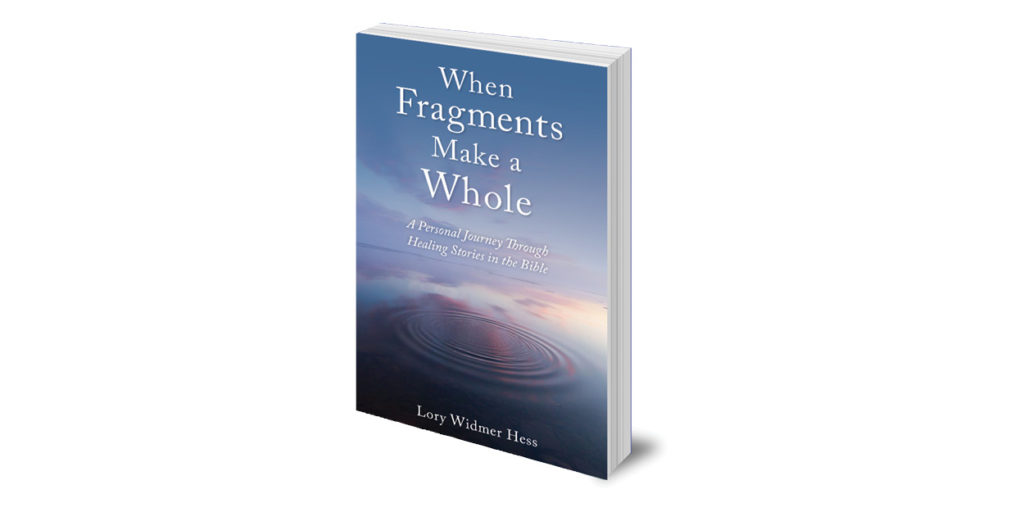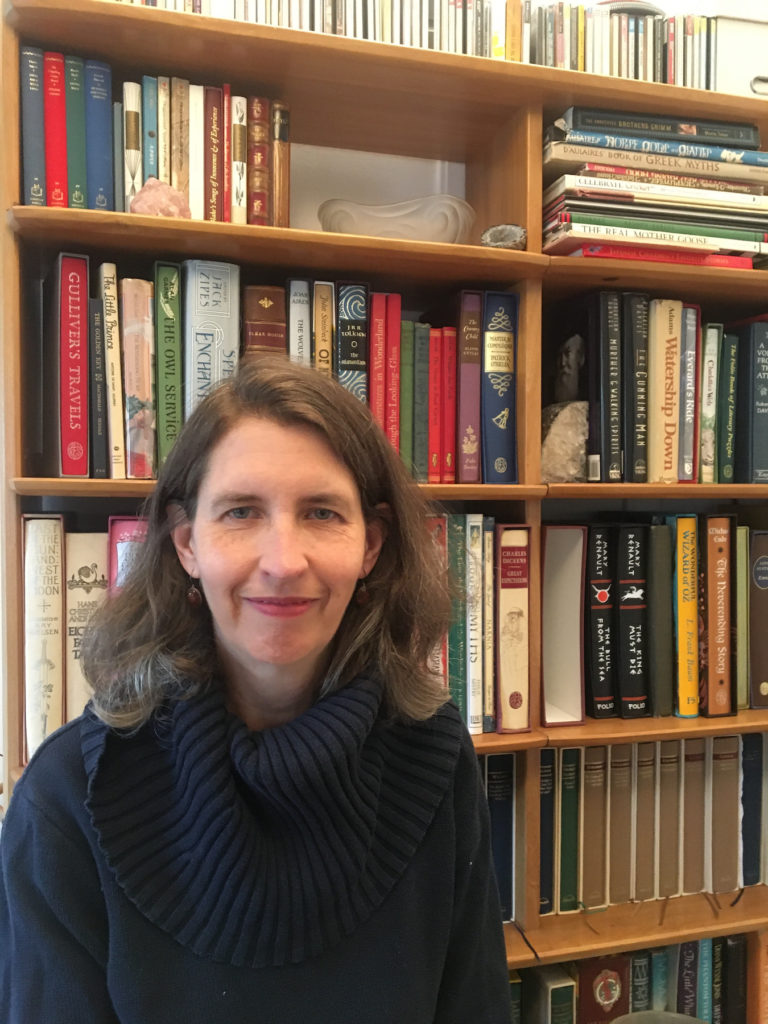When Fragments Make a Whole: A Personal Journey Through Healing Stories in the Bible
by Floris Books • 14 February 2024 • Anthroposophy, Extract, Religion, The Christian Community • 0 Comments

During a difficult time in her life, writer, editor and longtime student of anthroposophy, Lory Widmer Hess turned to the accounts of Jesus’s work on earth for comfort and inspiration. She wrote poems about the lives of the people who had been touched by Christ and, over several years, added personal reflections that explored the difficulties she was facing in her marriage, the challenges of raising a family, and setbacks in her career. Gradually she learned forgiveness and self-acceptance.

In When Fragments Make a Whole: A Personal Journey Through Healing Stories in the Bible, Lory describes her experience of inner transformation through her exploration of the healing stories in the gospels. In a unique blend of poetry, commentary and autobiography, she describes how she engaged with and drew inspiration from these stories. Her approach will inspire readers on their own journey of spiritual growth.
The extract below deals with the first individual healed in the Gospel of Mark, a man with an unclean spirit in the synagogue at Capernaum. Through her poem, reflections, and personal story Lory engages with this man’s suffering and the relief he finds through an encounter with Christ.
Chapter 1: A Man with an Unclean Spirit (Mark 1:21-28)
From Rod of Iron
My father raised us
with the wisdom of Solomon –
he spared no rod
and spoiled no child.
He’d beat the demons out of us, he said,
make us pure and holy
and fearful of the Lord.
It didn’t work with me.
Not fear, but rage grew as I grew,
flamed hot behind my eyes,
till one day, taller, stronger than him,
I snatched the rod
and broke it.
I threatened him with the splintered end
and I recall the surge of power
as he shrank from me,
diminished,
gone…
From Reflections on A Man with an Unclean Spirit
In the Gospels of Mark and Luke, the first healing performed by Jesus is of a man with an unclean spirit. It is preceded by Jesus’s teaching within a communal gathering of Jews, a synagogue. Before any healing of body or soul takes place, his words are described as having an unusual, indeed life-altering, power. Those who hear them are astonished, literally struck out of their wits (ekplesso1), and they identify Jesus as one who has authority (exousia), a ruler with the power to control and order events within a certain sphere.
In Mark, the significant word eutheos is used twice in this short episode. Usually translated as ‘immediately’ or ‘at once’, it connotes straightness and directness. It recalls the quotation from Isaiah which serves as the epigraph and leitmotif for this gospel: ‘Prepare the way of the Lord; make straight [euthus] in the desert a highway for our God’ (Isaiah 40:3). These are not outer paths; they are the ways of the human soul that have become crooked, distorted, unproductive and sick. The man with an unclean spirit appears ‘immediately’, straightaway, directly, as soon as Jesus begins teaching. The teacher’s powerful words reveal what had remained hidden before; they cut through our defensive shields, as a surgeon’s skill cuts through to the diseased organ.
The word for ‘unclean’ is akathartos. Modern psychology has familiarized us with the idea of catharsis: the need to dig out and work through past experiences that trouble our souls and disturb our physical health. Catharsis was the necessary first step of the ancient mysteries, for unaddressed impurities in the soul would lead to aberration and delusion when entering higher spheres of existence. In ‘Rod of Iron’ I have imagined an unhealed trauma that might have caused a man to appear to those around him as though he were possessed by a demon. There are countless examples of such phenomena in modern psychological case studies.
Jesus ‘rebukes’ the demon. This verb, epitimao, is formed of the root timao, meaning ‘to honor’, and the prefix epi-, meaning ‘upon’ or ‘against’. The primary meaning is to assess a penalty or set a just value upon something. Christ is able to perceive the suffering soul and identify the correct response. It isn’t a harsh, critical stance that he takes toward the sufferer, but that of a wise diagnostician who can see what is needed to restore balance. He rebukes the demon, not the man who suffers as a result of being possessed by the demon. In our time, when material science denies the existence of demons, we too often blame and judge people for behavior that is rooted in unhealed trauma. Unless we can learn to distinguish between a person’s essential self and the forces of oppression and bondage that work against that self, we will not be able to heal anyone…
From Personal Connections – Part 1
Lory describes a disturbing out-of-body experience that she had in college, but did not disclose to anyone at the time. She then describes the aftermath:
The problem, however, did not go away. It reappeared in my next venture, a graduate program where I would earn a master’s degree and certificate in elementary education. I’d applied to this program sight unseen and been accepted on the basis of my excellent grades and high test scores, but I soon learned that good test scores do not a good elementary school teacher make. I hadn’t been around children other than my younger siblings since my own childhood; I had vague, high-minded ideas that all the boredom and bullying I’d endured as a child could be cured by more progressive, more imaginative forms of education, and that these would be perfectly simple to implement. They were just waiting for innovators like me to enter the classroom.
I was not prepared for the reality of a room full of squirming, chattering, uncontrollable third graders, or for the nervous terror they would inspire in me. Once more I was knocked out of my body, unable even to see what was in front of my face. I had an actual experience of blacking out while still standing up and walking around. Here was the numbness and dissociation, my hidden monster, jumping out to ambush me again.
I didn’t tell anyone. After one disastrous lesson in which I was supposed to teach the multiplication tables but ended up with a room in chaos, the teacher who was mentoring me had to step in and take over. Afterwards, she asked me to explain what had happened. Why had I done nothing to address the disruption in the ways we had already discussed?
I couldn’t tell her the truth, which was that I hadn’t even been aware of it. I was so caught up in the storm of fear and anxiety inside me that I had become blind and deaf to the children and the classroom. I couldn’t say that, for it would show how deficient I really was.
And what would happen then? Would I be thrown out of the program? Would I fail?
I’d never failed in school before in my life.
I stammered something about just not knowing what to do.
Patiently, the teacher went back over what my options had been, explaining the principles of discipline and order that make for a well-run classroom. We made a plan for what I could do better next time.
And I did get better.
I learned some strategies and tools to help me cope, and avoided losing my vision completely in the classroom. The children were darlings, really, and they gave me their affection along with their naughty tricks. After some better experiences, I grew more comfortable with them. At the end of the semester, my teacher said I’d done a fine job with the last unit on the geography and cultures of Mexico, and so I was able to relax a bit and enjoy our final celebration – a Mexican fiesta!
I went on to teach in Montessori elementary schools for a few years, and then later pursued Waldorf teacher training. But that disconnection remained, hidden and unspeakable. Eventually my body started to protest, speaking up through the physical health issues that impelled me into the eurythmy training.
Now I know that it is trauma which pushes people out of their bodies and keeps them from connecting to the world, causing such feelings of numbness and dissociation. And I have also learned that trauma does not have to be outwardly, physically perceptible, as with a child who is beaten by their parents. It can occur on much subtler levels, and it can sometimes be impossible to identify a perpetrator. There may be no one to blame, no one to judge. There is only a life process that over the generations has fallen out of balance as we try to survive in an environment that has grown ever more toxic to our most essential nature…
Find out more about When Fragments Make a Whole here. If you’d like to receive exclusive discounts and keep up to date on all of our new books, join our mailing list here.
About the author

Lory Widmer Hess grew up near Seattle, Washington, USA. Encountering anthroposophy at the age of 26 set her on a long journey of exploration and discovery that included studies at Sunbridge College, Eurythmy Spring Valley, and the Seminary of The Christian Community in North America.
Lory has been a book editor for the Waldorf Early Childhood Association of North America and has worked for a number of anthroposophical organisations, most recently in communities serving adults with developmental disabilities. She currently lives with her family in Switzerland and is in training as a spiritual director. Visit her website and blog at enterenchanted.com.